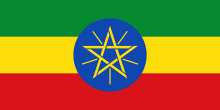This page is based on this
Wikipedia article Text is available under the
CC BY-SA 4.0 license; additional terms may apply.
Images, videos and audio are available under their respective licenses.

The Paralympics is a major international multi-sport event involving athletes with a range of disabilities, including impaired muscle power, impaired passive range of movement, limb deficiency, leg length difference, short stature, hypertonia, ataxia, athetosis, vision impairment and intellectual impairment. There are Winter and Summer Paralympic Games, which since the 1988 Summer Games in Seoul, South Korea, are held almost immediately following the respective Olympic Games. All Paralympic Games are governed by the International Paralympic Committee (IPC).

The 1968 Summer Paralympics were the third Paralympic Games to be held. Organised under the guidance of the International Stoke Mandeville Games Federation (ISMGF), they were known as the 17th International Stoke Mandeville Games at the time. The games were originally planned to be held alongside the 1968 Summer Olympics in Mexico City, but in 1966, the Mexican government decided against it due to difficulties. The Israeli government offered to host the games in Tel Aviv, a suggestion that was accepted.

Ethiopia first participated at the Olympic Games in 1956, and has sent athletes to compete in every Summer Olympic Games since then, except for the 1976, 1984 and 1988 Games. Ethiopia also participated in the Winter Olympic Games for the first time at the 2006 Games in Turin.

Bahrain has competed in 9 Summer Olympic Games. They have never competed in the Winter Olympic Games.

China competed at the 2004 Summer Paralympics, held in Athens, Greece. The country topped the medal table for the first time.

Swimming has been contested at every Summer Paralympics. At the first games, the 1960 Paralympics, 62 swimming events were held in distances of 25 and 50 metres, plus a 3×50 metre relay for men. Since then, swimming at the Paralympics has grown to 140 events covering distances from 50 to 400 metres, plus 4×50 and 4×100 metre relays. Along with track and field athletics, it is one of the largest sports at the Paralympics in terms of the number of events, competitors, and spectators.

Pakistan first participated at the Paralympic Games in 1992, and has sent athletes to compete in every Summer Paralympic Games since 1992. Pakistan has won two medals, a silver and a bronze medal in the Paralympic Games, both medals coming courtesy of Haider Ali in the Men's Long Jump event at the 2008 Summer Paralympics in Beijing and the 2016 Rio Summer Paralympics.

Finland competed at the 1968 Summer Paralympics in Tel Aviv. It was the country's second participation in the Paralympics. Despite a good result in 1960, Finland did not take part in the 1964 Games. Finland again sent just one competitor: Veikko Puputti, who entered the men's javelin and club throw. He did not win any medal.

Ethiopia was one of 28 nations to send a delegation to the 1968 Summer Paralympics in Tel Aviv, Israel from November 4 to 13, 1968; two Ethiopian athletes competed, both of them men. Abraham Habte and Negatu each took part in both athletics and table tennis events. The team did not win any medals at these Games and, as of the 2010 Winter Paralympics, no Ethiopian athlete has won a medal at either the Summer or Winter Paralympics.

Ethiopia competed at the 2004 Summer Paralympics in Athens, Greece. After a 20 years hiatus the country has made a comeback to the event.

Ethiopia sent a delegation to compete at the 1976 Summer Paralympics in Toronto, Ontario, Canada. Its athletes failed in winning any medal and finished last along 7 other countries.

Abebe Fekadu is an Ethiopian Australian powerlifter. He competed at the 2008 Summer Paralympics, where he finished tenth. He was selected to represent Australia at the 2012 Summer Paralympics in powerlifting. He did not medal at the 2012 Games.

Ethiopia competed at the 2012 Summer Paralympics in London, United Kingdom from August 29 to September 9, 2012.

Ethiopia competed at the 1980 Summer Paralympics in Arnhem, Netherlands. 1 competitor from Ethiopia won no medals and so did not place in the medal table.

Uganda sent a delegation to compete at the 2016 Summer Paralympics in Rio de Janeiro, Brazil, from 7 to 18 September 2016. This was the eighth appearance of the country in the Summer Paralympic Games after it debuted forty-four years prior at the 1972 Heidelberg Paralympics. Athletics track runner David Emong was the sole athlete representing Uganda in Rio de Janeiro. He took part in the men's 400 metres T45–47 competition on 8 September and did not qualify for the finals because he was fifteenth overall. Emong participated in the men's 1500 metres T45–46 event later that day and he took Uganda's first medal in Paralympic competition by coming second in the final.

Ethiopia competed at the 2016 Summer Paralympics in Rio de Janeiro, Brazil, from 7 September to 18 September 2016.
Yengus Dese Azenaw is an Ethiopian female para athlete. She represented Ethiopia at the 2012 as well as in the 2016 Summer Paralympics. Yengus Azenaw was motivated to be a professional para athlete by her primary school teacher.














